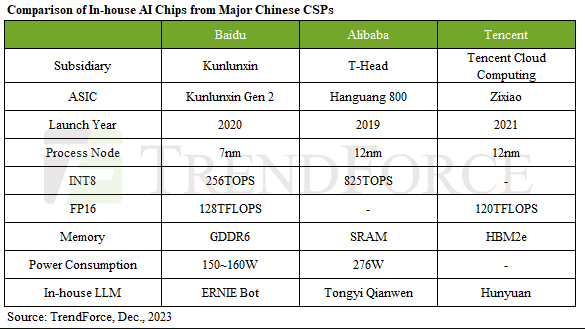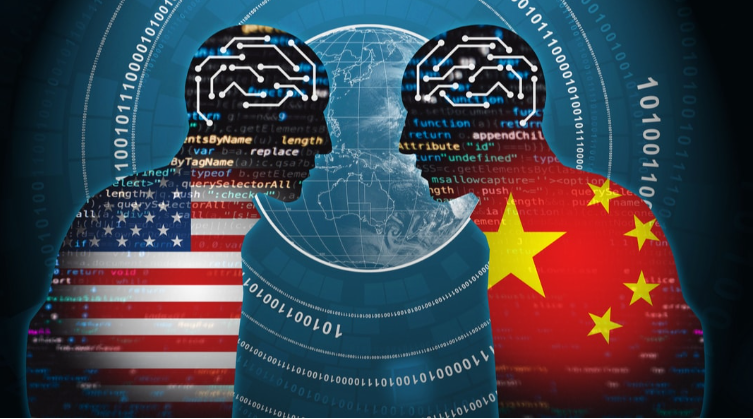12月 12, 2023
593
HiSilicon's Ascend 910B, employed in Huawei's public cloud infrastructure and sold globally, exemplifies China's prowess in AI chip development. Baidu, too, has made strides by ordering over a thousand chips to construct approximately 200 AI servers. Collaborating with Huawei, iFlytek introduced the "Gemini Star Program," featuring Ascend 910B, tailored for exclusive enterprise Large Language Models (LLMs).

Baidu's Kunlunxin, its first self-developed ASIC AI chip, debuted in early 2020, with the second generation slated for mass production in 2021 and the third expected in 2024. Post-2023, Baidu envisions incorporating Huawei's Ascend 910B chips and expanding Kunlunxin's utilization of its AI infrastructure.
After acquiring CPU IP supplier Zhongtian Micro Systems and establishing T-Head Semiconductor, Alibaba delved into ASIC AI chip development, unveiling the Hanguang 800. TrendForce notes that Alibaba is likely to increasingly rely on internal resources post-2023, bolstering the independent design capabilities of its next-gen ASIC chips for Alibaba Cloud's AI infrastructure.

U.S. sanctions, encompassing software and hardware, have added complexity to the landscape. In October 2023, the U.S. Department of Commerce added companies like Biren and Moore Threads to the Entity List. Regulatory measures governing advanced manufacturing processes have also impacted the export of high-end AI chips to China, posing challenges for leading manufacturers like NVIDIA and AMD.
Beyond the 2023 U.S. sanctions, restrictions on EDA semiconductor design software tools have affected advanced processes. While mainstream market chips are currently based on 6/7nm processes, upcoming models are expected to shift to 4/5nm processes by 2024. TrendForce anticipates that, despite short-term impacts being minimal, long-term challenges loom for China in adopting more advanced processes and developing next-gen, higher-performance High-Performance Computing (HPC) or AI chips.